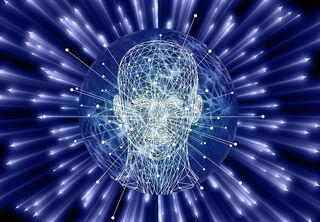Depression
First Personalized Deep Brain Stimulation Treats Depression
Severely depressed patient treated via a personalized neural biomarker.
Posted October 12, 2021 Reviewed by Kaja Perina

Personalized medicine is the applied treatment or medication that is based on information about a patient’s genetics, lifestyle, and environment. A new study published in Nature Medicine shows how the combination of precision-medicine and deep brain stimulation (DBS) successfully treated a patient with severe treatment-resistant depression.
Led by Andrew Krystal, PhD, professor of psychiatry and member of the University of California San Francisco (UCSF) Weill Institute for Neurosciences, the study opens the possibility of using a precision-medicine approach combined with deep brain stimulations for the treatment of psychiatric disorders.
Researchers discovered a neural biomarker by finding the pattern of brain activity associated with the onset of symptoms and used that data to personalize a DBS device to activate when the pattern is spotted. Specifically, the device gave a 1mA electrical stimulation for six seconds when it detected the neural biomarker.
“We’ve developed a precision-medicine approach that has successfully managed our patient’s treatment-resistant depression by identifying and modulating the circuit in her brain that’s uniquely associated with her symptoms,” stated Krystal in a statement.
The worldwide market for personalized medicine was USD 493 billion, with the North American region comprising 48.6 percent of revenue share in 2020 according to a report by Grand View Research. The precision medicine market is expected to grow at a compound annual growth rate (CAGR) of 6.2 percent during 2021-2028 per the same report.
A factor driving growth in precision medicine is the increasing number of companion diagnostic (CDx) devices and tests, especially in oncology, which help the clinician determine if the potential benefits of a particular drug or treatment will outweigh the risks or side effects. Another key factor is the rising trend of investigating the use of biomarker identification for the detection, diagnosing, monitoring, and treatment of diseases and conditions are driving the growth in precision medicine and pharmacogenomics.
Existing studies in deep brain stimulation has had limited success for depression treatment in the past because those devices only give constant electrical stimulation, and usually in only one part of the brain.
According to the UCSF neuroscientists, their precision medicine approach to deep brain stimulation was able to provide nearly instantaneous relief from depression in the patient. By mapping the patient’s depression circuit to identify a personalized symptom-specific neural biomarker, the researchers have demonstrated a groundbreaking proof-of-concept for a new potential approach for the treatment of severe depression in the future.
Copyright © 2021 Cami Rosso All rights reserved.


